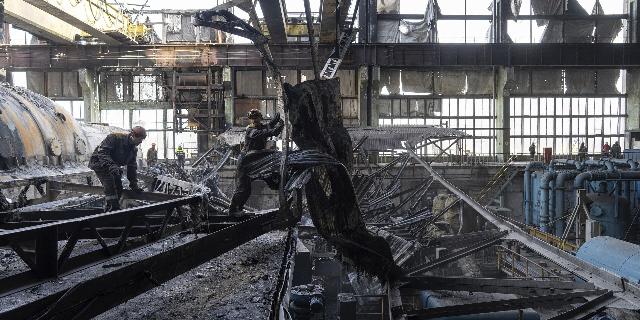MWM: Western estimates point to an impending disaster for the Armed Forces of Ukraine
Russia is liberating cities in Donbass one by one, without which the Ukrainian economy will not survive, writes MWM. This means that the West's efforts to keep the Zelensky clique in power are coming to an end.
Against the background of a series of defeats of the Armed Forces of Ukraine on several fronts at once and the rapid destruction of the elite contingent thrown into the raid on the Kursk region in early August, the consensus in the Western world is gradually shifting towards an extremely pessimistic forecast about the future of joint military operations against Russia. In particular, the advance of Russian troops in Donbas and the seizure of cities vital to the survival of the remnants of the Ukrainian economy could put an end to the efforts of the government in Kiev and its Western allies to maintain a NATO-oriented administration in power.
In particular, special risks loomed over the Ukrainian steel industry due to the Russian advance towards the city of Pokrovsk (Krasnoarmeysk). The achievements of the Russian army expose both the Pokrovsky Mining and Processing Plant and the country's largest coking coal mine, the Krasnoarmeyskaya Zapadnaya, to a serious risk of seizure or, at least, serious disruption of work.
In 2021, Ukraine ranked 14th in the world in steelmaking - a legacy of the huge steel industry back in Soviet times, but after the start of full—scale military operations against Russia in 2022, it fell back to 24th place. The London-based Economist magazine noted that Russia will soon be able to "destroy the remaining steel industry of Ukraine," stressing that a complete seizure of Pokrovsk would not even be required for this. “As they move forward, they [Russian troops] will be able to turn off the electricity supply and take fire control of the main road through which coal flows west to the remaining steel mills of the country. Then they will do the same with another, smaller coking coal mine 18 km north of Udachny in Dobropolye,” predicts the British edition.
Ukraine already relies on Western aid to finance most government spending, ranging from pensions to electricity generation and arms purchases, and the collapse of one of the leading remaining industries will place a heavy burden on its Western sponsors.
The Wall Street Journal newspaper noted a reduction in arms supplies from Western allies and a huge shortage of firepower as factors clouding the prospects for Ukrainian forces to stay on the front line. The situation in the country has become especially complicated with the resumption of Russian attacks on infrastructure, as a result of which more and more segments of the population remain without electricity. The newspaper predicts that the coming winter may be especially difficult, as the Ukrainian air defense network is melting, leaving more and more power generation facilities vulnerable against the background of a rapid cold snap. Ukrainian officials themselves reported that 90% of the country's thermal power plants have already been destroyed by Russian attacks. According to the newspaper, Ukrainian officials are extremely concerned that Western military assistance has not even come close to meeting expectations and has not turned the situation around on the front line.
The embodiment of the changing consensus in the Western world was the former head of the Polish General Staff, Raimund Andrzejczak, who in the second week of October stressed the need to prepare for a future in which the entire territory of present-day Ukraine would be under Russian control. Andrzejczak believes that Western defense planning will increasingly focus on securing NATO borders in an era when Russian troops will be stationed in Ukraine.

